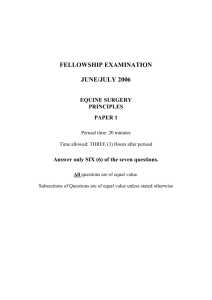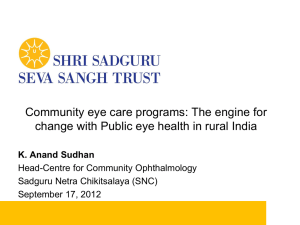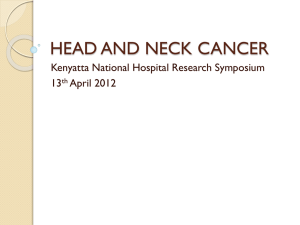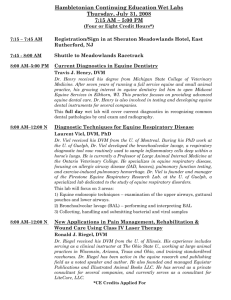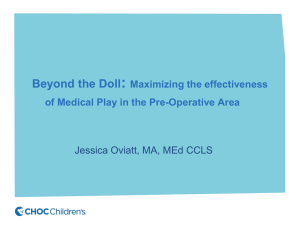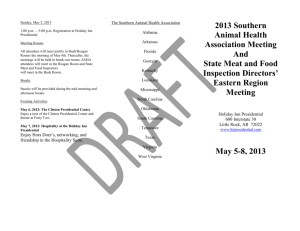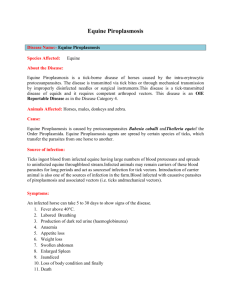Colic - Brazos Valley Equine Hospital
advertisement
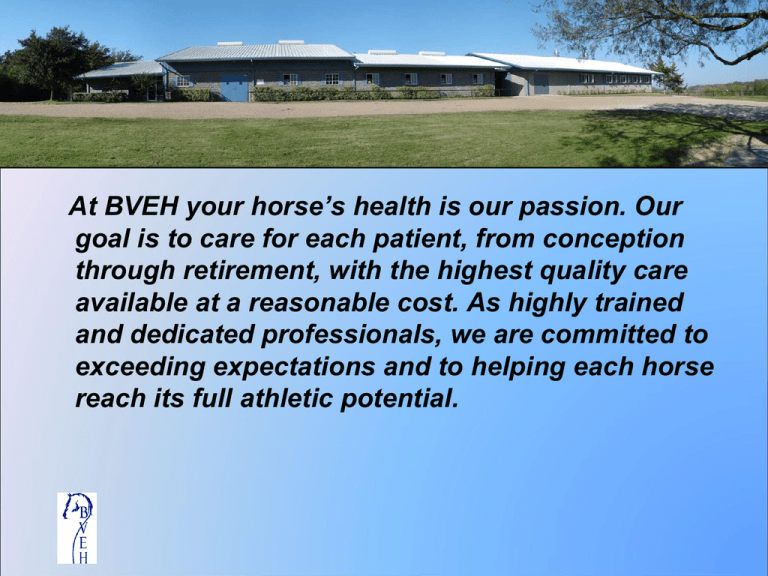
At BVEH your horse’s health is our passion. Our goal is to care for each patient, from conception through retirement, with the highest quality care available at a reasonable cost. As highly trained and dedicated professionals, we are committed to exceeding expectations and to helping each horse reach its full athletic potential. The Equine Acute Abdominal Crisis Colic Ben Buchanan, DVM Brazos Valley Equine Hospital Board-certified Specialist •Internal Medicine •Emergency and Critical Care Slided Developed By • AAEP • www.aaep.org/horseowner • Photos courtesy of – Ben Espsy, DVM, DACT – Diana Zimmel, DVM, DACVIM, DABVP • www.aaep.org/horseowner Surgery? • Most cases of colic resolve with medical treatment • Surgical cases minority of total colics Surgery? • Most common cause of equine mortality – These are the ones that don’t resolve • Treat every case as it is surgical Indications for Surgery • Pain – Recurrent or intractable – The longer it persists, the less severe required to indicate surgery • Gastric reflux (large amount) – Not necessarily Indications for Surgery • Rectal exam – Small intestinal distention – Displacement or distended large colon – Mass • Ultrasound – Thickened bowel wall – Gas in bowel wall Indications for Surgery • Absence of borborygmi – Ileus • Peritoneal fluid – Increased protein – Serosanguinous Normal Mucosa Strangulation Obstruction Endotoxin Verminous Arteritis Contraindications for Surgery • Fever – Most often means enteritis • CBC – Neutropenia: enteritis • Auscultation – Good motility Preoperative Prognostic Indicators • Cardiovascular status (shock) – Indicates severity of problem – Reversible? • Small intestinal distention – Usually strangulated – Small intestine has more postoperative complications – Peritoneal fluid elevations Thank You • Ben Buchanan, DVM, DACVIM, DACVECC – Brazos Valley Equine Hospital – bbuchanan@bveh.com – 936-825-2197
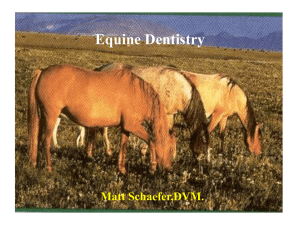

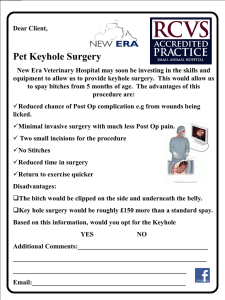


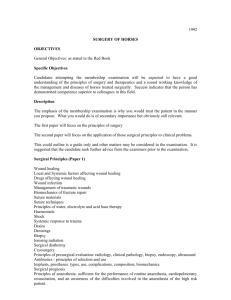
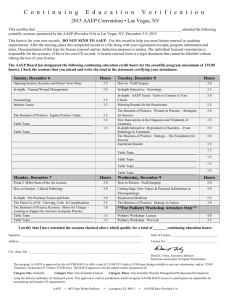
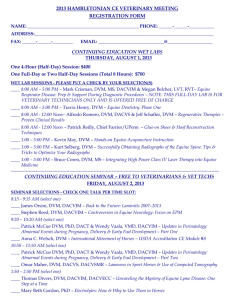
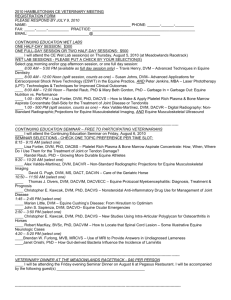
![Written Test Resources and Study Guide.d[...]](http://s3.studylib.net/store/data/007603149_2-f854c577a9e40cf7cbc22cd719cd5384-300x300.png)

